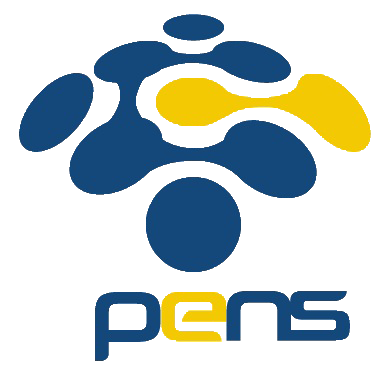IES 2019 UPDATE
[Information to Author for Accepted/Conditional Accepted Paper Procedures]
Please make the necessary changes based on reviewers’ comments and suggestions. Then, We would like your cooperation with the double check of your paper.
- For the copyright: Please ensure you process the copyright. The IEEE e-copyright submission can be done in EDAS electronically at ‘Copyright form’.
- For the paper final version: Please Strictly use and follow to IEEE template Manuscripts (Word Format): https://www.ieee.org/conferences/publishing/templates.html
- Proofread your final manuscript thoroughly to confirm that it will require no revision.
- Please ensure that number of pages of your final paper is 4-8 pages.
All the papers have to go through the file conversion (become PDF file) offered by IEEE PDF eXpress. You can refer to the link here: http://www.pdf-express.org/. You will need the Conference ID to log in, which is: 48358X. After file conversion (become PDF file) offered by IEEE PDF eXpress successfully. You can upload PDF file paper final version in EDAS at ‘Final manuscript’ - Please take notice that the Final Paper should be submitted by August 23, 2019.
- Most importantly, please ensure the similarity score is less than 30%. You can refer to EDAS to see the similarity score of your paper. According to IEEE regulations, any paper with a similarity score of more than 30% will be dropped and should be reported to IEEE.
- Please make sure your final paper follow this rule.
If the similarity score of final version is more than 30%, the paper will be dropped or cancelled to be presented at IES Conference. - IEEE reserves the right to exclude a paper from distribution after the conference (e.g. removal from IEEE Xplore) if the paper is not presented at the conference.
CALL FOR PAPER
IES 2019
International Electronics Symposium (IES) 2019 is organized by Politeknik Elektronika Negeri Surabaya (PENS), Surabaya, Indonesia, and a technical co-sponsored IEEE conference. The 21st IES 2019 provides a good platform for researchers, scientists
IES 2019 contains two tracks:
IES ETA
International Electronics Symposium on Engineering Technology and Applications (IES-ETA) 2019 has been registered in the world’s largest professional association for the advancement of technology, Institute of Electrical and Electronics Engineers (IEEE).
IES KCIC
International Electronics Symposium on Knowledge Creation and Intelligent Computing (IES-KCIC) 2019 has been registered in the world’s largest professional association for the advancement of technology, Institute of Electrical and Electronics Engineers (IEEE).

Invitation
We cordially invite you to attend the IES-ETA 2019 and IES-KCIC 2019, which will be held in Surabaya, Indonesia, on September 27-28, 2019. All full paper submissions will be peer reviewed and evaluated based on originality, technical and/or research content/depth, correctness, relevance to conference, contributions, and readability. Papers in the technical program have to describe high-quality and original research. The full paper submissions will be chosen based on technical merit, interest, applicability, and how well coherent and balanced technical program. The accepted paper will be considered for publication in IEEE Xplore and Scopus indexing. The selected papers will be recommended for journal publication. High-quality papers will be nominated for “Best Paper Award”.

Paper Publication
The accepted paper will be considered for publication in IEEE Xplore and Scopus indexing. The selected papers will be recommended for journal publication. High-quality papers will be nominated for Best Paper Award. The accepted papers with improved version will have opportunities for consideration for journal publication in:
EMITTER
EMITTER International Journal of Engineering Technology (National Accredited, ESCI coveraged by Clarivate Analytics, indexed by Copernicus and DOAJ)
IJASEIT
International Journal on Advanced Science, Engineering and Information Technology (IJASEIT) (indexed by Scimagojr, Scopus, DOAJ, etc.)
Principles
Conference publication and promotion for journal publication is under working principles of the conference as follows:
All accepted papers will be included in IES 2019 Book Program. All presented papers will be published in IEEE Xplore Digital Library and indexed by Scopus. High-quality papers will be nominated for Best Paper Award.
- The author has to improve the paper at least in 8-12 pages (more than
number of pages required for the conference in 4-6 pages) - There is at least
30 % improvement in the abstract and content of the paper. - The title should be different
with the title of paper for the conference. - The author must also submit a summary of changes that outlines how the submitted version differs from the conference version.
The author chooses the journal for publication and submits the improved
IES-ETA
International electronics Symposium on Engineering Technology and Applications
Join us in International Electronics Symposium on Engineering Technology and Applications (IES-ETA) 2019. The symposium is focusing on practical application of science and engineering to a wide range of real world problems, delivering the engineering technology from laboratory to marketplace. IES-ETA 2019 brings technology and business leaders, experts from academia, and government together to materialise the ideas. On behalf of our symposium organizers we warmly invite you to submit your research abstract and participate in this exciting international event.
International Electronics Symposium on Engineering Technology and Applications (IES-ETA) 2019 has been registered in the world’s largest professional association for the advancement of technology, Institute of Electrical and Electronics Engineers (IEEE).
Topics of interest
Power engineering and Energy Technology
- Power Quality and Electromagnetic Compatibility
- High Voltage Engineering and Insulation Technology
- Power Generation Technology
- Power System Dynamic, Stability and Control
- Power System Protection, Reliability and Security
- Electric Power Transmissions and Distributions
- Power Electronic Converter Topologies, Design and Control
- Switch-Mode Power Supplies and UPS
- Electric Drives and Electrical Machines
- Renewable Energy and Smart Grid Technology
- Energy Storage System and Technology
Telecommunication Engineering Technology
- Electromagnetic Compatibility
- Electromagnetic and Radio Propagation
- Wireless and Mobile Communications
- Telecommunication, Propagation and Networking
- Computational Electromagnetics and Electromagnetics Simulation Technology
- DSP real-time encoding technology and signal Embedded Systems
- High Voltage Engineering and Insulation Technology
- Power Generation Technology
- Power System Dynamic, Stability and Control
- Power System Protection, Reliability and Security
- Electric Power Transmissions and Distributions
- Power Electronic Converter Topologies, Design and Control
- Switch-Mode Power Supplies and UPS
- Electric Drives and Electrical Machines
- Renewable Energy and Smart Grid Technology
- Energy Storage System and Technology
Electronics Systems and Electrics Technology
- Biomedical Engineering
- Microelectronic Circuits and Systems
- Measurement and Instrumentations
- Nano Technology
- Micro-Electro-Mechanical System
- Sensor, RFID, and Electronic Design
- Material and Device
- Vehicular technology
Robotics Technology and Control Systems
- Robotic Vision
- Intelligent Robotics
- New Mechanism and Mobility
- Networked/Ubiquitous Robotics
- Disaster Robotics
- Humanoid Robot
- Service Robotics
- Nano/Micro Robotics
- Surgery Robot
- High Voltage Engineering and Insulation Technology
- Power Generation Technology
- Power System Dynamic, Stability and Control
- Power System Protection, Reliability and Security
- Electric Power Transmissions and Distributions
- Power Electronic Converter Topologies, Design and Control
- Switch-Mode Power Supplies and UPS
- Electric Drives and Electrical Machines
- Renewable Energy and Smart Grid Technology
- Energy Storage System and Technology
IES-KCIC
International electronics Symposium on Knowledge Creation and Intelligent Computing
International Electronics Symposium on Knowledge Creation and Intelligent Computing (IES-KCIC) 2019 has been registered in the world’s largest professional association for the advancement of technology, Institute of Electrical and Electronics Engineers (IEEE).
Knowledge creation is becoming more important topic for researchers and users in academic, management and industrial fields. The term has been widely used for the last couple of years, and refers to the formation of new ideas through interactions between explicit and tacit knowledge in individual human mind. To realise knowledge creation in real life, it is essential to transform human mind into computation in order to extract potentially useful information from data and create valuable knowledge. The use of intelligent techniques in computing-related fields can be useful to retrieve meaningful result in automated processes for knowledge creation.
To bridge research activities between young researchers on Knowledge Creation and Intelligent Computing research fields, we cordially invite you to participate in The Sixth International Conference on Knowledge Creation and Intelligent Computing (KCIC). Started from this year, KCIC becomes more applied and sets a new name with International Electronics Symposium on Knowledge Creation and Intelligent Computing (IES-KCIC) 2019. IES-KCIC 2019 will be held in Surabaya, East Java, Indonesia, on September 27-28, 2019. IES-KCIC 2019 is a technical co-sponsored IEEE conference and organized by Electronic Engineering Polytechnic Institute of Surabaya, and Keio University, and supported by some institutions.
Past Conferences
Topics of interest
Knowledge Base and Engineering
- Information modelling
- Knowledge acquisition and accumulation
- Knowledge discovery
- Knowledge management
- Information systems and applications
- Human-computer interaction and Modelling
- Intelligent optimization
Intelligent Multimedia Systems
- Multimedia modelling
- Multimedia computing systems and applications
- Intelligent multimedia analysis and processing
- Web intelligence
- Web-based support systems
- Multimedia information retrievals
Computational Intelligence
- Learning and adaptation
- Perception and learning
- Emotion modellin
- Cognitive sciences
- Probabilistic and reasoning computation
- Reinforcement learning
- Statistical methods and data mining
- Pattern recognition
- Artificial intelligence and soft-computing
Applied-Computing Sciences
- ICT-based environmental studies and computations
- Social-based computing model and analysis
- Social media engineering
- E-Learning and educational computation
- Cross-cultural computation and modelling
- Disaster management computing and support systems
- Medical computing analysis and applications
- Robotics computing model and applications
- Intelligent text processing and Computational linguistics
- Linguistic knowledge modelling and representation
Important Dates
-
Deadline of Paper Submission : July 5, 2019
- Extended deadline of paper submission: 3 August, 2019
- Notification of Paper Acceptance : August 12, 2019
- Early Bird Registration & Payment : August 16, 2019
- Final Manuscript (Camera Ready) : August 23, 2019
- Deadline Registration & Payment : September 6, 2019
- Main Conference : September 27-28, 2019
IES ETA & IES KCIC Conference Day 27-28 September 2019
Day(s)
:
Hour(s)
:
Minute(s)
:
Second(s)
Keynote Speakers
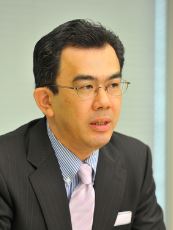
Prof. Noboru Koshizuka
(The University of Tokyo, Japan)
Professor, the University of Tokyo
Vice Dean, Interfaculty Initiative in Information Studies, the University of Tokyo
Chief Director, UTODC: Open Data Center, The University of Tokyo
Vice Director, YRP Ubiquitous Networking Laboratory
Noboru Koshizuka is Vice Dean and Professor in Interfaculty Initiative in Information Studies, the University of Tokyo, Japan. In the university, he has founded and is now directing UTODC (Open Data Center, the University of Tokyo), which is the first research center of open data in Japan. He was born in Tokyo, Japan in 1966. He received the B.S., M. S. and D. S. degrees in information science in 1989, 1991, and 1994 from the University of Tokyo, Japan.
Since 1990, he has been participating the TRON (The Realtime Operating system Nucleus) Project. For about 25 years, he has been researching ubiquitous computing, IoT (Internet of Things), embedded systems, human-computer interactions, and computer networks. Currently, his main research interests are IoT (Internet of Things), ubiquitous computing, open-data, embedded real-time systems, operating systems, and computer networks. Recent years, he has been actively contributing the activity of open data in the public sectors such as national and local governments in Japan. He is a director of Foundation for Vitalizing Local Economy Organization by Open Data & Big Data (VLED), member of Association for Open Data for Public Transportation (ODPT), and Open Data Evangelist of National Strategy office of Information and Communication Technology, Cabinet Secretariat, Japan.
Dr. Koshizuka is a member of the IEEE, ACM, and Information Processing Society of Japan.
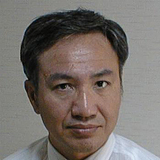
Prof. Yoshiteru Ishida
(Toyohashi University of Technology, Japan)
Professor, Toyohashi University of Technology
Yoshiteru Ishida received the BA Eng., MA Eng., and Dr. Eng. degree in Applied Mathematics and Physics from Kyoto University, Japan, in 1979, 1981, and 1986, respectively. He joined the Department of Applied Mathematics and Physics and the Division of Applied System Science, Kyoto University, as Assistant Professor from 1983 to 1986 and 1986 to 1994, respectively.
In April 1986 and 1993, he became a Visiting Researcher at School of Computer Science and Department of Psychology, Carnegie-Mellon University. From April 1994 to February 1998, he joined the Graduate School of Information Science, Nara Institute of Science and Technology.
Since June 1998 until 2010, he became a Professor at Department of Knowledge-based Information Engineering, Toyohashi University of Technology. Currently, he is a Professor at Department of Computer Science and Engineering, Toyohashi University of Technology.
Prof. Yoshiteru Ishida is a member of ACM, IEICE, IPSJ, SICE and JFES
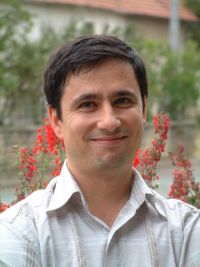
Prof. Eugen Dedu
(Institute Femto ST - France)
Eugen Dedu is associate professor in computer science with Univ. Bourgogne Franche-Comté, and with FEMTO-ST Institute/CNRS (National Scientific Research Center), in France. He obtained his Ph.D. in 2002 and his habilitation in 2014.
Currently he is leader of OMNI research team composed of 17 full/associate professors and several PhD students. He has co-authored more than 40 articles in international journals and conferences. His current main research interests are in communication in nanonetworks, especially at routing and transport layers.
Nanonetworks, as a network of nanodevices, are an emergent field of research, driven by continual object miniaturization (e.g. computer components, programmable matter), potential use in human body (advanced health monitoring), and large network bandwidths (Tb/s).
As a new field of research, its fascinating communication specificities are to be discovered and analysed. In this field he has published so far 11 articles in international journals/conferences, and initiated several international collaborations.
He has also been working on transport protocols in computer networks, especially for video transmission, and distributed intelligent MEMS. He was also involved in free software development.
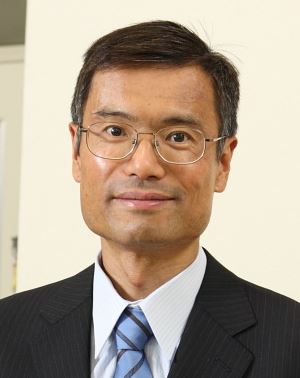
Prof. Nobuo Funabiki
(Okayama University, Japan)
Nobuo Funabiki received the B.S. and Ph.D. degrees in mathematical engineering and information physics from the University of Tokyo, Japan, in 1984 and 1993, respectively. He received the M.S. degree in electrical engineering from Case Western Reserve University, USA, in 1991.
From 1984 to 1994, he was with the System Engineering Division, Sumitomo Metal Industries, Ltd., Japan.
In 1994, he joined the Department of Information and Computer Sciences at Osaka University, Japan, as an assistant professor, and became an associate professor in 1995.
He stayed at University of California, Santa Barbara, in 2000-2001, as a visiting researcher.
In 2001, he moved to the Department of Communication Network Engineering (currently, Department of Electrical and Communication Engineering) at Okayama University as a professor. His research interests include computer networks, optimization algorithms, educational technology, and Web technology.
He is a member of IEEE, IEICE, and IPSJ. He is the associate editor-in-chief in Journal of Communications since 2016 and an editor in International Journal of Computer & Software Engineering since 2018. He was the chairman at IEEE Hiroshima section in 2015 and 2016.
He has served as a member of technical program committees in more than 30 international conferences. He has published more than 600 papers and coauthored seven books.
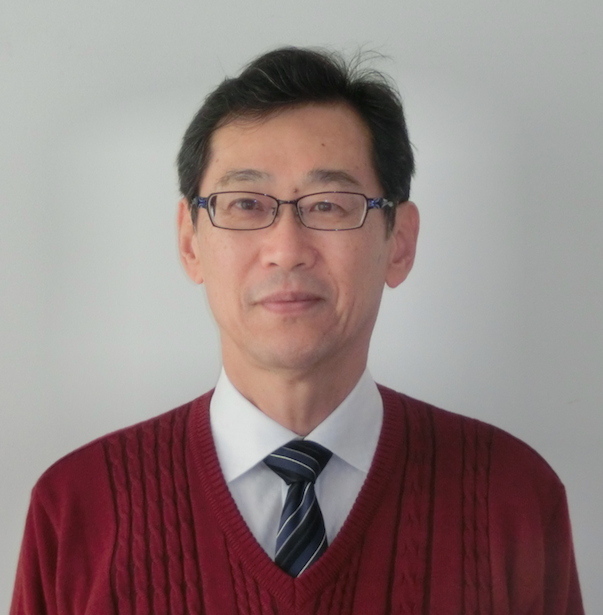
Akio Gofuku
(Okayama University - Japan)
Akio Gofuku graduated Kyoto University in Electrical Engineering in 1981 for bachelor course and 1983 for master course. He got PhD degree from Kyoto University in 1990.
He worked as an assistant professor in the Institute of Atomic Energy, Kyoto University from 1984 to 1994. In the meanwhile, he was a visiting researcher of Technical University of Denmark from 1993 to 1994. He moved to Department of Mechanical Engineering, Okayama University in December 1994 as an associate professor. He is currently a professor of Graduate School of Interdisciplinary Science and Engineering in Health Systems, Okayama University.
His current research topics are operator support systems of complex industrial plants, spherical motors, and medical support systems.
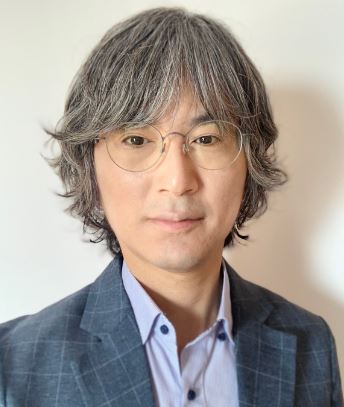
YoungBong Seo
(Pusan National University - Korea)
Vice Director, Innovation Center for Engineering Education
Research Professor, Alliance of Busan (Beyond) Engineering Education Centers
Vice Director, Education Center for Creative future Engineers(Project Heptapus)
Research Professor, Office for Education Accreditation
Pusan National University
Busan, Korea
Tel: +82-51-510-3183
Fax: +82-51-514-2736
E-mail: ybseo@pusan.ac.kr
Young Bong Seo received the M.S., and Ph.D. degrees in Mechanical and Intelligent Systems Engineering form Pusan National University at 1999 and 2003. He is currently a Research Professor in Center for Education Accreditation, Innovation Center for Engineering Education, Alliance of BEE Centers, and Education Center for Creative Future Engineer, Pusan National University, Korea.
His current research interests include engineering service learning, good capstone design, problem based learning and engineering education method. He organized a creative design program such as Project BEE, Creativity Station, Smile Project and BEEBOY School with WSN robot since 2009.
Organised by:
